- Home
- Bill James
First Fix Your Alibi Page 3
First Fix Your Alibi Read online
Page 3
‘Suddenly we lack equipoise,’ he’d said, ‘because equipoise demands at least two components.’ Really, though? What a terrific insight! ‘Remove one and in the resulting lurch the city no longer benefits from those powerful, smooth-running, allied firms.’ Iles obviously didn’t want that kind of chaos. Neither did Ralph: probable vicious, all-out territorial warfare. The ACC had gone on to spout something like, ‘Where there was amity and cooperation there would be hugger-mugger – another strange term that had lodged in Ember’s memory – where there was light there would be pitch; where there was impeccable order there would be shit.’
‘Mr Iles prefers the impeccable order,’ Harpur had said. ‘It’s a forgiveable little kink of his.’
Ember, also, would prefer order to shit and, therefore, Manse’s safety, health and durability were crucial. Senior people in Shale’s firm had managed to keep it going reasonably well during Manse’s lapse into religion and donations. That successful caretaking might not be possible next time, though, suppose there were a next time. Ralph must try to prevent this. If Waverton did amount to a continuing menace to Manse Shale’s business, then Waverton had better be got rid of. A menace to Shale’s company was a menace to Ralph’s. The ‘interweaving’ ensured this. Did that mean Ralph would do the getting rid of so Shale couldn’t be blamed for it? Did that also mean Ralph would do the getting rid of so as to build up credit for future use in a sort of reciprocal, ‘you-owe-me-one, Manse’, murders fund? Possibly.
This was how Ember’s thinking had moved. But now, at the Agincourt celebration dinner: ‘Oh, sorry, sorry, sorry, Ralph, Manse,’ Assistant Chief Iles called out merrily as the folding table where Ralph and Shale had been talking skidded to the left and then collapsed. As if to demonstrate that powerful, glorious love of order mentioned recently by Harpur, Iles had flung across the big Agincourt banqueting hall a heavy who’d been posted to guard the door and keep out the uninvited. He’d dutifully attempted to stop Iles and Harpur. The man crashed into the corner table bringing it down, and staggered on a few paces, eventually striking his head against the bar and concussing himself.
‘Well done, oh, so very well done, Ralph!’ Iles shouted. Ember had managed to grasp the Kressmann Armagnac bottle in time so it didn’t smash on the ground or spill. The balloon glasses did fall and break, though. ‘Col and I thought we’d look in and make sure everything was hunky-dory. Harpur believes in maintaining amiable relations between us – the police – and the general population, which would include you and Manse.’
Iles turned the doorman on to his back, checked his tongue wasn’t choking him, then straddled him and began to give mouth-to-mouth resuscitation. The ACC was in full, light blue, dress uniform, plus cap. The soles of his shoes showed very little wear.
Yes, Ralph saw some of that much desired, precious, precarious orderliness in this scene. There was the flattened doorman wearing his dismal workaday denim lying stunned and useless alongside the toppled table and the glass splinters; and there was Iles in his natty power-blessed clothing and cap intent on restoring the pulverized bully-boy to life and normality. All right, Ralph had no fondness or respect at all for the wearer of that fine uniform, Iles, but the fine uniform was undoubtedly fine, with near-top-dog epaulettes, and seemed to proclaim dignity, rectitude, competence, benign control. Order, in fact. This uniform would look brilliant and reassuring at any official ceremony but did not seem out of place, either, therapeutically straddling a shattered, by-the-hour thug.
The man stirred and managed to get a small, pity-seeking moan out around Iles’s lips. The ACC finished the mouth-to-mouth. Ralph would admit that Iles never persisted with a grievance against anyone. As long as he could throw someone who annoyed him the full width of a big room to crash against something nice and solid, with the possibility of a fractured skull, Iles would consider that quite enough to make his point.
‘Come on, old chap, you’ve had a nasty little turn, that’s all – probably the excitement of the Agincourt occasion,’ he said, ‘so many celebrities.’ Iles swung his right leg over the body and stood up. He and Harpur bent to help the man get to his feet. They guided him a few steps and propped him against the bar. Iles called for something ‘restorative and enhancing’ and gave the man a tot of single malt. ‘Good,’ the ACC said.
Harpur righted the table and cleared the major pieces of glass away with his foot. He collected a couple more chairs and Iles, Ember, Shale and Harpur sat down again. Ember called to the barman to bring more glasses and the usual port and lemon for Iles – the ‘old tart’s drink’, as he called it; and a double gin topped up with cider in a half pint glass for Harpur. Ralph and Manse drank some more of the Kressmann’s.
The doorman went back to his post. ‘Perhaps we should have let you know we were going to drop in, Ralph, Manse,’ Harpur said. ‘We don’t usually. It’s a long time since our last visit.’
‘Col had begun to feel this was rather stand-offish, if not rude,’ Iles said, ‘so he insisted we come. Col is like that, a gem, very socially aware and keen not to give offence. One shares that feeling oneself, of course.’ The doorman threw up noisily. ‘Fucking Hollywood,’ the ACC said. ‘They can clear that up when they do the glass splinters. Yet he didn’t taste too bad. You and Ralph were having a secluded little pow-wow, were you, Manse?’
‘A kind of summing-up of the business and fiscal half-year,’ Ember replied.
‘Col felt it would be something like that,’ Iles said.
‘And the firms’ pension funds,’ Ralph said.
‘Ah,’ Iles replied. ‘Col, counting the vehicles in the hotel car park just now, remarked to me, “This looks like a pensions discussion.” Harpur has seen a great deal of life. He intuits. You’d be amazed at how frequently he intuits. Show him an array of expensive motors in a hotel car park and he’ll say at once, “Pensions.” If there were a Queen’s Police Medal for intuits, he’d walk away with it.’
Of course, Ralph recognized this as micky-taking. It was in the style of this arrant, fully paid-up, degenerate sod, Iles. He would fix on a word or phrase launched by someone else and play about with it, pretending to take it seriously but really giving it big, Desilesian ridicule. Did he somehow have a true idea of what Ember and Manse had been discussing before the doorman came amongst them like grape shot?
Iles glanced about the room, smiling sort of genially. His sort of. He said to Ralph and Manse, ‘I know Col thinks I should speak a few words. He won’t tell me as much because it would impose obligation, and Col is not that kind of person – too considerate, too sensitive to others’ feelings.’
‘What do you mean, Mr Iles, “speak a few words”?’ Ralph replied.
‘Yes, a few words in celebration,’ Iles said.
‘“In celebration” of what?’ Ralph asked.
‘Yes, in celebration,’ Iles answered. ‘Col said to me the other day, “Do you realize, sir, that it’s an age since we’ve been to one of the justly famed Agincourt meetings? This could be deemed dereliction. I feel we should get along there this time because the occasion is special. We should, in the words of the cricketing metaphor, break our recent duck, i.e., reach something more than nil visits this year”.’
‘But in which way is the occasion special?’ Ralph asked.
‘And this is how we come to be in the very well-occupied car park and led to deduce that serious discussion must be under way, such as at least pensions,’ Iles replied enthusiastically.
‘Why do you say “at least”, Mr Iles?’ Ralph asked. He feared that the otherwise cheerful evening could be spoiled – first the shattered, vomiting doorman; and then Iles with his ‘few words’. Which fucking few words? Would they really be few? Would they be civilized, tolerable? Notoriously, he would take over public occasions, sometimes forcibly, particularly funerals, though other gatherings, too. When he spoke of ‘a special occasion’ it might mean he was going to get difficult and turbulent in one of his own ‘special’ ways. Ralph didn’t fancy this
.
Iles stood now and rapped the table with his knuckles. The room went silent. Everyone faced him. ‘Dear friends,’ he said, ‘Col and I are here tonight to mark the return of Manse Shale to this city’s mercantile scene after the disastrous ambush where his wife and son were killed and, following that, his period of spiritual restitution and repair. Isn’t it wonderful to see him back in the esteemed role he occupies so brilliantly?’ Iles slowly, solemnly raised his glass of port and lemon and said, ‘Let us all drink to Manse Shale and to his triumph over hellishness.’
‘To Manse!’ the crowd called out and followed Iles in the toast. Shale stood, too, now and gave a slight bow first to Iles and then to the general assembly. The moment had dignity and quiet splendour. It made Ralph think of television coverage of a royal wedding in Westminster Abbey. A quantity of dark hair fell forward on to Shale’s brow and he brushed it back gently, unhurriedly, with his right hand. This gesture did not seem to Ralph showy or vain. Manse might have learned something about humility from sermons in his recent church era. There were more cries of acclamation and some applause. Ember considered that, despite Shale’s suffering, his eyes retained their undiluted ferretiness. Manse had a formidable inner strength.
Iles said, ‘What else can I feel for Harpur but major gratitude? He persuaded me in his tactful yet determined fashion to attend your function tonight and enjoy the lovely sense of fellowship and conviviality, qualities that cannot be bettered, I’m sure, in any comparable get-together nationwide, if not even globally. Trade rivalries are put aside for the jolly duration of fine feasting and are temporarily replaced by happy, authentic comradeship.’
There were loud shouts of: ‘Hear, hear!’
‘And you know, folks,’ Iles said warmly, ‘as I look out on all these fond, cordial faces I think to myself that among them somewhere is the infinitely devious, contemptible arsehole who supplied the school run route for Naomi and Laurent’s fated day of death. This was someone close, someone familiar, who got the occupants of the car wrong, but the street directions so cruelly right. If it wouldn’t look like an unkind send-up of the nominal door bouncer, I could puke when I recall that plot against Manse. The gunman was killed at the time, so we got no leads from there. We know the firm he was hired from, but not who hired him. I, Desmond Iles, have to find the filthy, slimy whisperer. And from there I might discover who was ultimately in charge and got the whisper. Harpur will try to help me after his own lumbering, well-meant style. He has some good moments and not just diagnosing pensions discussions from a crowded car park.’
‘Thank you, sir,’ Harpur replied.
‘That’s not really a skill there’s much call for following the great Parliamentary Reform Act of 1832,’ Iles said. ‘It wouldn’t appear on Col’s CV: Qualified to infer pensions colloquia from hotel car parks.’
He moved away from alongside Harpur. As was usual, Ralph had hired a disc jockey for dancing after the meal. He was about to start the music. But Iles stepped on to the little raised platform at the end of the banqueting hall, stood commandingly in front of the sound equipment, and announced that, if people didn’t mind, he would like to show gratitude for being welcomed into the function by singing an aria from one of his favourite operas, Madame Butterfly. He admitted it was a song normally performed by a woman, but said he didn’t care for sex restrictions. ‘Music has no gender,’ he stated. The number, he told the room, was ‘One Beautiful Day’ (‘Un Bel Di’) in which Butterfly dreams hopelessly – as we sense – for the return of Lieutenant Pinkerton, her rotten, double-crossing husband. Iles said that one male officer in uniform (himself) yearning for another male officer in uniform (Pinkerton) brought extra width and modernity to the opera. Rename it ACDC Butterfly, Ember thought.
He considered Iles got his mild tenor voice around the soprano notes and Italian wordage OK for the first few minutes but then gradually, unstoppably, broke down into desperate sobbing at the terrible sadness of Butterfly’s fate. Ember thought it might not be the first time Harpur had witnessed this kind of pain engulf Iles. There must be weaknesses in the assistant chief’s customary brass-necked, rough-house personality. Hurrying forward, Harpur seemed prepared for the collapse and brought an obviously very clean, very ready, white handkerchief from his pocket and methodically wiped tears from Iles’s face, the ACC unresisting. Then Harpur helped him, still weeping, to a chair near the doorman’s neatly strata-formed pile of sick. Possibly Harpur always stocked a clean-up, ministering hanky when he and Iles went to this type of function.
Harpur nodded to the disc jockey. He announced a Clean Bandit number that Ralph used sometimes at the Monty. People put their drinks glasses on the table and got out on to the patch of open floor.
‘I could kill that bastard,’ Iles said.
‘Which?’ Ralph asked.
‘I think the ACC means the composer,’ Harpur said, ‘but he’s probably already dead.’
‘Why, why couldn’t Puccini round it off right?’ Iles said. ‘This is a fifteen-year-old girl he’s putting through the mincer.’
‘They can be like that,’ Ember said. ‘Geniuses get through practising their scales and then look around for a tragedy to musicalize. It’s to tweak our responses. They don’t much care what the response is as long as they can achieve a tweak. It means they’ve reached us, like a town crier.’ God, he hoped Harpur and Iles wouldn’t turn up regularly at the Agincourt meets from now on. If they did, it would be wise to ask Iles for a different type of song, something hearty and assertive, such as ‘Drake’s Drum’ or ‘Tomorrow Is A Lovely Day’.
Shale gazed for more than a minute at a couple dancing nearby. Ralph gazed at them, too. The man was one of those whose backs he had taken note of a little while ago. Now, Ralph saw that his face and frontage matched pretty well Manse’s description of Waverton. He did look fit enough for dawn jogs on remote hillsides. Ralph glanced away to Shale again. The ferrety eyes gave Ralph a non-blink stare and then swung left towards Harpur.
‘How does the 1832 Parliament thing come into things?’ Manse asked.
‘Well, yes,’ Harpur replied.
He and Iles left soon afterwards. Iles seemed to Ralph more or less all right again now, his sorrow and rage at the way Pinkerton had rejected him virtually under control.
THREE
In some ways, Ember didn’t know what to make of that Agincourt evening, but in one crucial way he did: he knew Manse Shale’s Strangers On A Train idea now definitely required thinking about; thinking seriously about. There had been, first, the confirmation by Iles that Manse correctly assumed betrayal from within Shale’s own firm had probably led to the killing of his wife and son in the school-run Jaguar. If Iles believed something you’d better think about believing it, too. He might be an evil prat – no, certainly was an evil prat – but under the braided cap a busy brain functioned; a destructive, continuously malicious, egomaniac brain, but, still, a brain.
Of course, Shale went further and claimed to have identified the traitor, Frank Waverton. Iles did not endorse this in his ‘few words’ but had spoken as if the two-timer were in the Agincourt room. He hadn’t indicated male or female. True, he’d called the renegade an arsehole but, like music, arseholes were not gender specific. They got allocated willy-nilly.
Obviously, Iles might know more than he said. Police usually did, and especially top police, and even more especially among top police, Iles. Just the same, Ralph doubted whether Iles had the name, and Ember couldn’t himself feel totally sure Manse was right: that sudden visionary gift sent special-delivery through the church didn’t strike Ralph as convincing; sort of: ‘Vengeance is mine,’ saith the Lord. ‘I’m willing to share it this once with you, though, Manse.’
But Ember could accept now that someone, probably from within Shale’s firm, had tried to sell Manse to an enemy, might try to sell him again, and had to be stopped, preferably and non-traceably by Ralph. This was the tricky, troublesome part of the thinking – the ‘by Ralph’ bit. That
had also been confirmed at the Agincourt, not in the same straightforward fashion, however.
What had disturbed Ember was the kind of silliness and lack of focus infecting the police people whose job it was to hunt down all accessories to the Jaguar ambush. Ralph had come to consider that he was the only one with the commitment and drive to clinch this. Commitment and drive Ralph suspected were as central to him as circulation of the blood. Shale, in that sequence of stares, first at Waveton, if that’s who the dancer was, then at Ralph, seemed to acknowledge Ember’s special zest and competence. Manse obviously considered that if Ralph did a murder for him it would be a beautiful, deft, nicely managed murder which, as it were, called out for reciprocity, though without stipulating date and time.
Iles had spoken of the need to fix blame, but surrounded that basic, vital matter with the absurd, stagey, blubbing grief from his transsexual performance as Madame Butterfly, and the nonsensical, irrelevant reference to Harpur’s CV, and to parliament in history. Harpur was nearly as bad. Manse had asked him very reasonably how this mention tied in with everything else about the current parking and pensions, and Harpur answered, ‘Yes’ – except it offered no answer at all but a haughty brush-off. Ralph would admit ‘yes’ was a word built to be an answer, but not to the kind of question Manse had asked. Often he’d noticed examples of anti-communication between Harpur and Iles: there’d be questions, there’d be replies, but they rarely had much to do with each other, like ships that passed in the night.
Ralph retained the conviction that he, alone, or maybe with Manse to some degree – yes, Ralph retained the conviction that only the pair of them possessed a proper approach to the current, pressing realities. And Ralph felt proud of this. It made him think again, but more strongly than ever before that his present fine flamboyant life – the wealth, the property, the club, the ponies, the private schooling etcetera – all of it was frippery, wholly, secretly, dependent on this other world of conflict, threat, ruthless gain, violence. He felt thankful to the Agincourt for helping him see these factors in their true shape, and to work out how to deal with them. It would be inane not to recognize unpleasant, tricky truths and take them into the reckoning. That kind of evasiveness was certainly not how the battle of Agincourt had been resoundingly won.

 I Am Gold
I Am Gold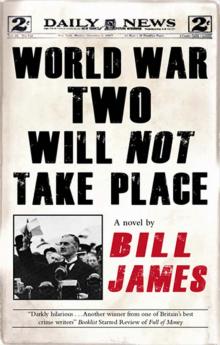 World War Two Will Not Take Place
World War Two Will Not Take Place Pix (Volume Book 24) (Harpur & Iles Mysteries)
Pix (Volume Book 24) (Harpur & Iles Mysteries)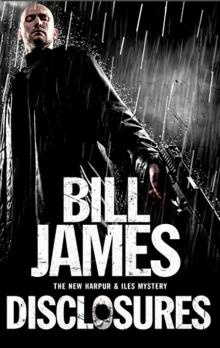 Disclosures
Disclosures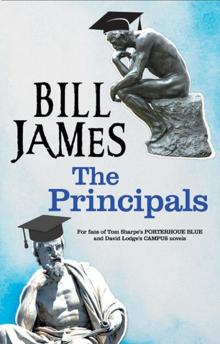 The Principals
The Principals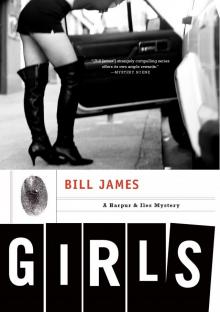 Girls
Girls Undercover
Undercover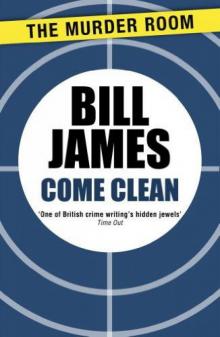 Come Clean (1989)
Come Clean (1989)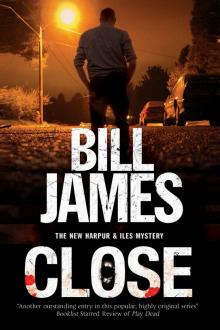 Close
Close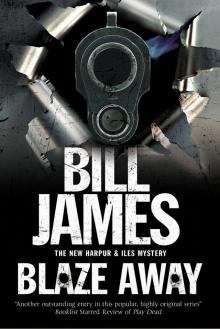 Blaze Away
Blaze Away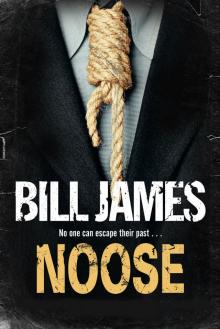 Noose
Noose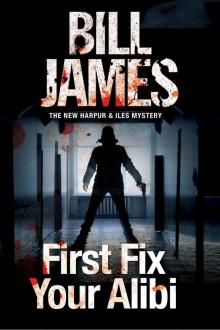 First Fix Your Alibi
First Fix Your Alibi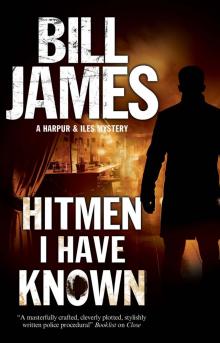 Hitmen I Have Known
Hitmen I Have Known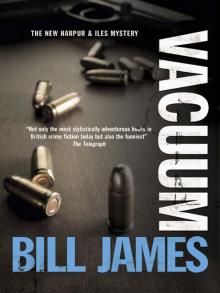 Vacuum
Vacuum Play Dead
Play Dead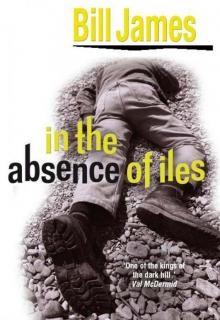 In the Absence of Iles
In the Absence of Iles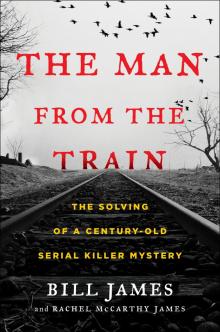 The Man from the Train
The Man from the Train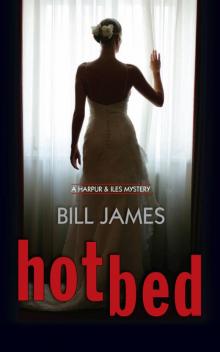 Hotbed
Hotbed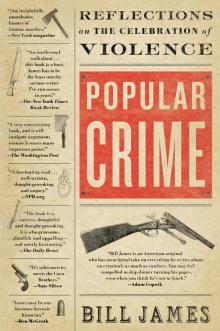 Popular Crime
Popular Crime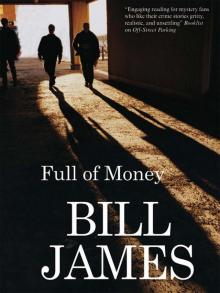 Full of Money
Full of Money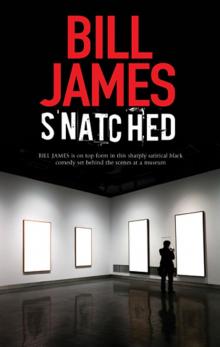 Snatched
Snatched